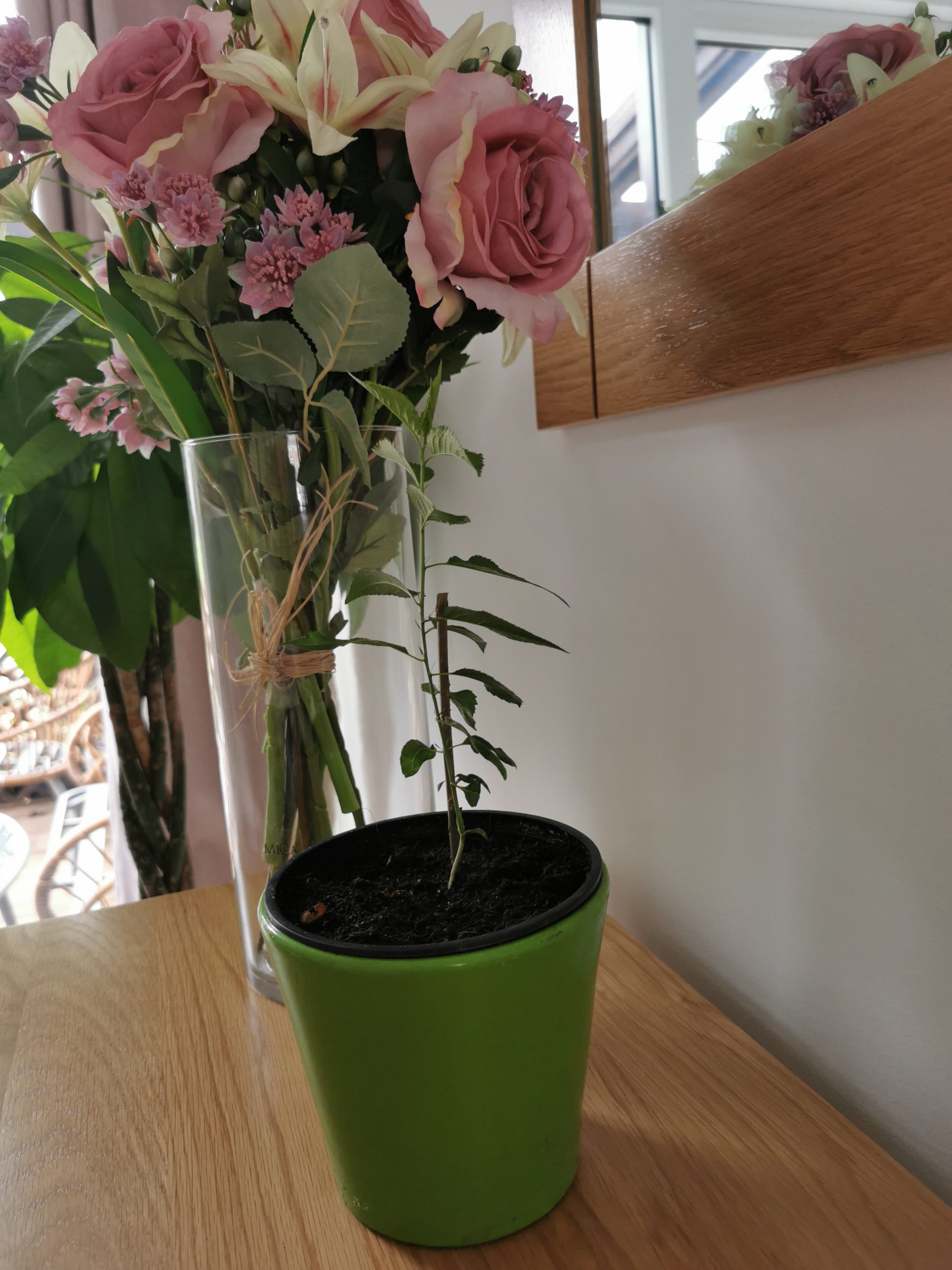A few months ago my husband decided to grow some Japanese Sakura trees. He went through both the stratification and germination steps and about 5 weeks ago the seedlings were ready to be planted. Maybe it is because I have been working from home and walking past the pots a good few times everyday, or possibly just that I have been more interested in gardening in general lately but I started to take a real interest in their progress.
I found it astonishing that certain variables such as which windowsill they’ve been sitting on can have a huge impact on their growth and health.


You will see from these pictures there are quite significant differences in two plants that came from the same batch of seeds. Possibly some difference could be accounted for by the actual biological makeup of the seed, however I feel the significant difference in the growth has been one pot was positioned at the front of the house on the porch windowsill and the other at the back of the house on the kitchen windowsill. They were all watered in the same way/ at the same time and are planted in similar sized pots so variables such as daylight, warmth and the general environment played a huge part in the outcome of how well the plants have grown so far.
It’s rather obvious really, all organisms require certain conditions and environmental factors that help them to survive or indeed thrive.
So that led me to think about what we do/can do for ourselves that help provide the most optimal conditions and environment to thrive? This for me is one of my hottest topics of late (since becoming a mother and responsibilities at work growing rather exponentially I have struggled a little)…. How do I fill my own cup up or ‘bolster’ myself to get to the best version of ME so that I can then start to pour from a ‘fuller’ cup and be more useful and take care / serve others better as a result?
The obvious ones around Maslow’s hierarchy of needs theory are making sure I drink enough water, eat healthy(ish) food, getting plenty of sleep – taking regular breaks, exercising and keeping supple. Maintaining healthy relationships and friendships is a huge one for me alongside travel, adventure and generally ‘sharpening the saw’ whether it is learning, reading, reflecting /working on my values and my why.
Other exploration areas that are still ‘work in progress’ are:
- Don’t be afraid to say ‘No’
- Explore coaching sessions
- Meditate
- Keep a gratitude journal
But the general premise here extends far beyond self care – what can we do as parents to nurture and help promote healthy growth and safety for our children? Firstly practicing self care is a really good step in the right direction, ‘children learn you’ sometimes haunts me so setting a good example and being a role model on this is something I want to consciously do.
What about promoting and protecting conditions that help the team at work thrive?
Team building activities have been very popular for many decades because whatever kind of team that comes into my mind, I know that in order for it to be successful, the core ingredient is to have trust. And I think this kind of goes hand in hand with promoting a working environment that is psychologically safe.
Psychological safety is being able to show and employ one’s self without fear of negative consequences of self-image, status or career.
Kahn 1990, p. 708
In terms of agile teams, it is near impossible to be successful in agile with a team or culture that doesn’t feel safe. The 3 pillars of Empirical Process Control depend on this. We need to provide safety to promote Transparency in order to make Inspection worthwhile and Adaption possible.
Practical actionable points could be:
- Carryout regular Team Safety Checks.
- Collaborate on building out a Working Agreement. These are generally short and provide a set of guidelines that are important to the team members as a whole. Some examples can be don’t interrupt, don’t place blame, be on time for meetings, sidebar topics where necessary, there is no such thing as a stupid idea etc.
- Have clear goals and visions
- Onwards and Upwards: Encourage experiments and be open to trying new ideas and failing in parts to learn and move forward. (Further learning check out this TedX by Amy Edmondson)
- Mentor on areas such as conflict resolution and team dynamics (Tuckman’s 4 Stages of Group Development for instance)
- Have the courage to show vulnerability and be a role model, admit mistakes, ask for help, collaborate with an open heart and speak up when things aren’t quite right
And as an extension to the team, what about the culture or organisation or family unit? (TBC)